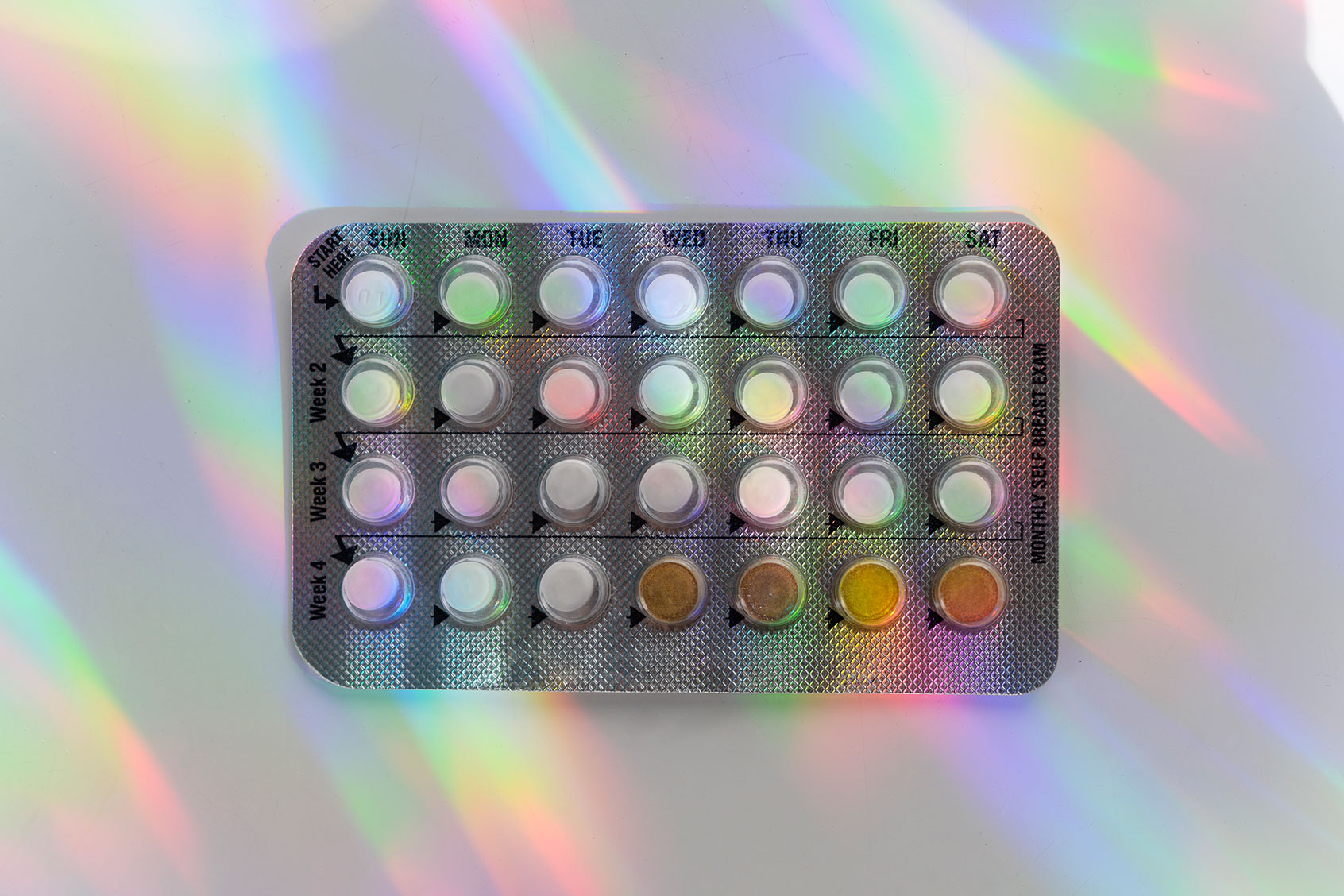On Thursday, the U.S. Food and Drug Administration (FDA) approved an over-the-counter birth control pill, marking the first time an oral contraceptive has ever been available without a prescription in the United States to prevent pregnancy. Known as Opill (norgestrel), the much-anticipated announcement is a historic moment for female health.
“When used as directed, daily oral contraception is safe and is expected to be more effective than currently available non-prescription contraceptive methods in preventing unintended pregnancy,” said Patrizia Cavazzoni, M.D., director of the FDA’s Center for Drug Evaluation and Research in a statement. “Today’s approval marks the first time a nonprescription daily oral contraceptive will be an available option for millions of people in the United States.”
Opill was first FDA-approved in 1973 as a progestin-only medication, which refers to the class of drugs it falls under. Opill works by thinning the lining of the uterus, which can prevent sperm from reaching an egg by thickening mucus in the cervix.
Dr. Alison Edelman, professor and OB/GYN at Oregon Health & Science University, told Salon that she thinks it’s important that the first pill to be available over the counter is progestin-only. Compared to combination oestrogen-progestin pills, progestin-only pills carry fewer risks like blood clots.
“Progestin-only pills really can be used by almost anybody, no matter the age range of a reproductive individual, and then also by a number of disease states,” Edelman said. “So even if you have some chronic medical diseases, taking this pill can help prevent pregnancy and it doesn’t make your disease state worse.”
People who have a history of breast cancer are not advised to take Opill while folks with other forms of cancer should consult with their doctors before use, the FDA advises. In the statement, the FDA said it’s approving over-the-counter use for all people of reproductive age, including teenagers.
“I don’t think I can emphasize enough the landmark nature of this approval for women and people with pregnancy capacity.”
As Salon previously reported, over-the-counter availability will improve accessibility to birth control. A study published in The Journal of Health Politics, Policy and Law in 2021 found that low-income people and people of color are more likely to live in contraception deserts. Despite the significant progress, the U.S. has lagged behind for decades as a majority of the world doesn’t require a prescription to access oral contraceptives.
“I don’t think I can emphasize enough the landmark nature of this approval for women and people with pregnancy capacity in the United States,” Edelman added. “Especially given the changes in our ability to have control over our bodies and our destinies with the ruling of Dobbs last year.”
Dr. Melissa Simon, an obstetrician gynecologist at Northwestern Medicine, called the decision “monumental” in an email to Salon.
“The FDA should be applauded for aligning contraceptive access with science,” Simon said. “Over-the-counter birth control is available in over 100 countries, so the U.S. is substantially behind in availing safe and effective ways such as this oral contraceptive pill to individuals who are trying to avoid pregnancy and plan their families.”
“The FDA should be applauded for aligning contraceptive access with science.”
Currently, there are some details that remain unknown. Exactly when Opill will be available for purchase is unclear, as that is determined by the pill’s manufacturer, Perrigo. In the company’s press release about Thursday’s news, Perrigo said Opill will be available in stores and online at leading retailers across the U.S. in early 2024. Another unknown detail is its cost, which will determine how accessible it is to Americans, despite not requiring a prescription.
In an email statement to Salon, Frédérique Welgryn, Perrigo’s global vice president for women’s health, said the company is “committed to ensuring that Opill is widely accessible and affordable to most women and people who need it .”
“We are also working on a consumer assistance program to help some women and people who would benefit from using Opill, but are struggling to make ends meet,” Welgryn said. “In addition we will work to list Opill with private insurers and Medicaid, and will support efforts, together with the advocacy groups, on obtaining insurance coverage for Opill, which will take more time as OTCs are not currently covered by insurance.”
Edelman emphasized that determining the cost will be incredibly important.
“We really want to make it cost effective,” Edelman said. “I’m somebody who comes from a framework that birth control should be free, but I understand that that’s not the system that we have in place. A lot of countries have contraceptive methods that are free and subsidized, but a lot of other countries have a different system of health than we do.”
“If the price point is set too high, this will prohibit those from lower socioeconomic backgrounds from access.”
Simon said determining cost “is critical to ensuring equitable access” to everyone who wants to benefit from this pill.
“If the price point is set too high, this will prohibit those from lower socioeconomic backgrounds from access,” Simon said. “This is especially important in states that have near total or total abortion bans, where access to and use of contraception to prevent unintended pregnancy is critical.”
Edelman said it’s important to note as well that this news is not a replacement for access to abortion.
“We can provide as much contraception in the world and as much access in the world but, you know, we always have contraceptive failures,” Edelman said. “We have individuals that can’t take contraception and we have things that happen in pregnancy — so this is not going to replace the need for access to abortion. But it’s just one added piece to the puzzle that helps allow people to make choices for themselves.”
Read more
about birth control


